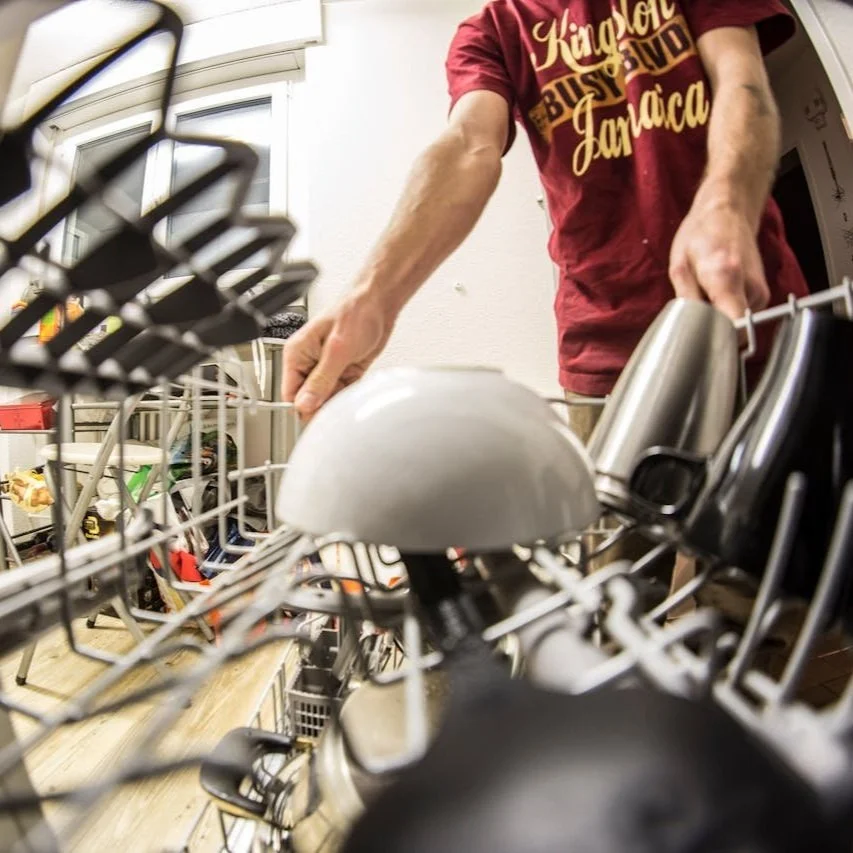When The Dishwasher Smells Like A Swamp And Refuses To Clean
When the dishwasher smells like a swamp and refuses to clean, it stops being helpful and starts acting like an appliance with a grudge.
Dishwashers are supposed to simplify life. Load the dishes, close the door, press the button, and walk away. It’s a beautiful system—until the dishwasher starts producing a smell that could scare off wildlife. When the dishwasher smells like a swamp and refuses to clean, it stops being helpful and starts acting like an appliance with a grudge.
It’s more common than most people think. The dishes aren’t sparkling. The smell coming from inside the machine is somewhere between a musty basement and a low tide. And even after a full cycle, forks still have crusted remains of last night’s dinner. It’s not just unpleasant. It’s unacceptable.
Where The Smell Starts
That swampy scent usually comes from leftover food particles trapped in places that never see the light of day. Filters, spray arms, and drainage lines collect the bits and pieces from every rinse and every wash. Over time, they build up into a soggy, smelly mess that settles deep inside the machine.
The inside of a dishwasher stays warm and damp—perfect conditions for bacteria and mildew to thrive. It doesn’t take long before the smell grows strong enough to catch attention the moment the door swings open. A clean machine shouldn’t smell like that. And it certainly shouldn’t leave plates looking like they were only rinsed with attitude.
When The Dishwasher Stops Doing Its Job
Bad smells are one thing. Dirty dishes are another. When both show up at the same time, something inside the dishwasher isn’t working the way it should.
Spray arms might be clogged. Filters could be jammed. The detergent dispenser may not be opening correctly. Or the water temperature may not be hot enough to clean properly. Even if the cycle completes, those problems leave dishes looking dull, streaked, or worse—still dirty.
A dishwasher that runs but doesn’t clean is only pretending to work. The longer it goes without repair, the more buildup occurs. And the more that smell becomes a regular part of the kitchen experience.
Not All Problems Are Obvious
Many dishwasher issues hide in plain sight. A clogged spray arm won’t make noise, but it can stop water from reaching all the racks. A filter jammed with food won’t trigger an alert, but it can turn every wash into a lukewarm bath in dirty water. And a blocked drain hose won’t draw attention until the dishwasher starts leaking or refusing to finish cycles.
An appliance technician knows where to look. They recognize the signs of wear that most people miss. They inspect valves, sensors, seals, and pumps to figure out exactly why the machine smells like a science experiment and performs like it needs a vacation.
Cleaning Helps, But It’s Not Always Enough
Homeowners often try to fix the problem with vinegar, baking soda, or dishwasher cleaner pods. Those can help in the short term, especially if the issue is minor. But if the root of the problem lives deep in the drain or inside the pump, surface-level cleaning won’t reach it.
Once the dishwasher starts showing signs of real trouble, calling a technician is the best way forward. They don’t just mask the smell—they deal with the reason it started. That includes checking water pressure, clearing buildup, testing components, and making repairs that bring the machine back to its best behavior.
The Value Of Calling A Local Technician
A local appliance technician knows dishwashers inside and out. They’ve worked on every brand, every style, and every model that ever stopped mid-cycle with a pool of gray water at the bottom. They understand how to fix a dishwasher that smells like a swamp and refuses to clean, without making it a week-long process.
They bring the tools and parts to make quick, effective repairs, whether it’s a blocked drain, a burnt-out heating element, or a stubborn filter that won’t budge. And they always check the full system, so no hidden problems stick around waiting to resurface later.
Prevention Is Easier Than Replacement
A dishwasher that smells awful and leaves dishes dirty doesn’t need to be replaced. Most of the time, it needs a professional cleaning, a few adjustments, or a part swap that takes less than an hour. Early repairs keep the problem from turning into a bigger one and extend the life of the appliance.
A technician can also give tips for keeping things fresh between visits. That might include regular filter cleaning, running hot cycles with cleaner every few weeks, or even rearranging the way dishes sit in the racks. Small changes make a big difference over time.
From Funky To Fresh Again
A dishwasher should never be the source of a bad smell in the kitchen. When it stops doing its job and starts releasing swampy aromas, it’s time to treat the issue like the real problem it is. Calling in a professional doesn’t just fix the smell—it restores the entire appliance.
Once everything is working again, the dishes come out clean, dry, and ready to use. And the only thing that hits the nose when the door opens is the faint smell of soap and success. The swamp goes away. The dishes sparkle. And laundry can finally stop pulling double duty in the cleaning department.

